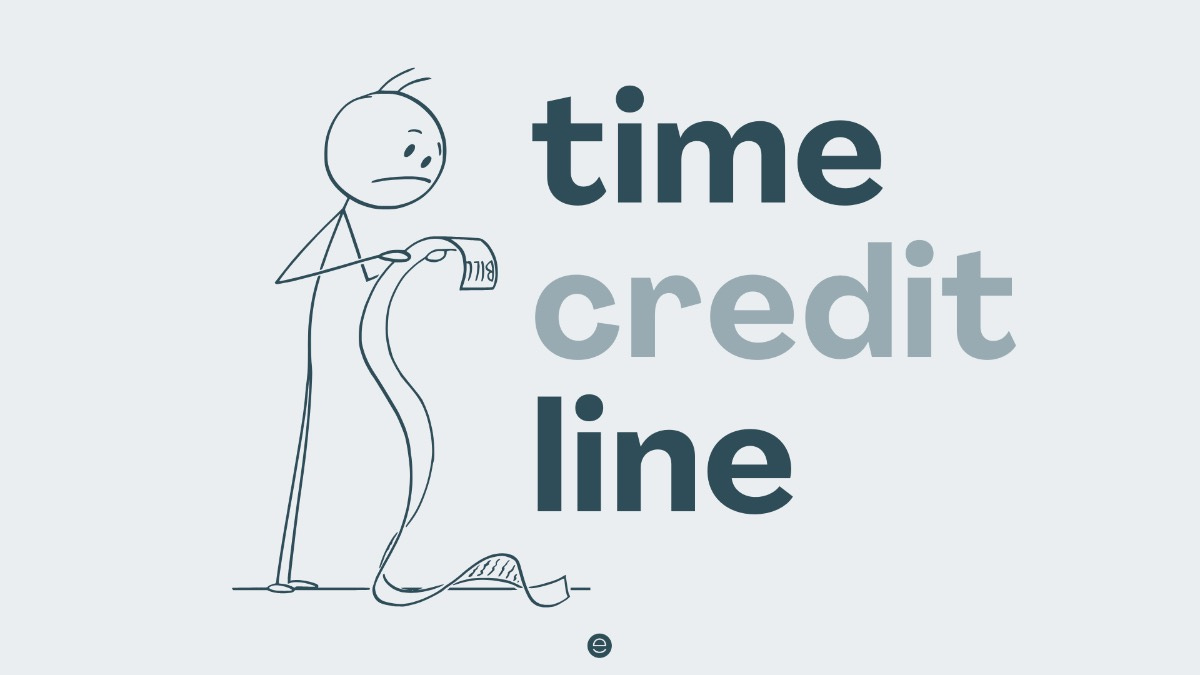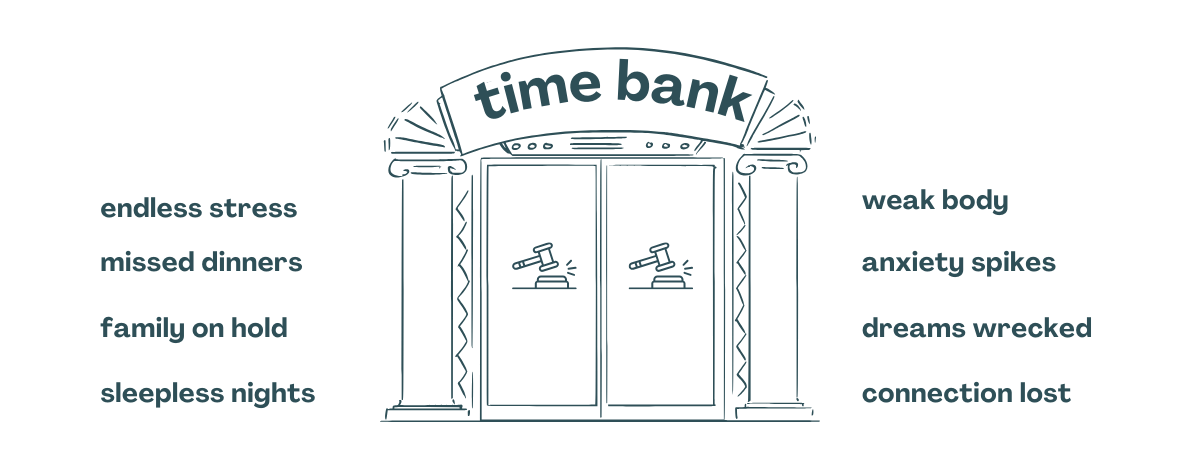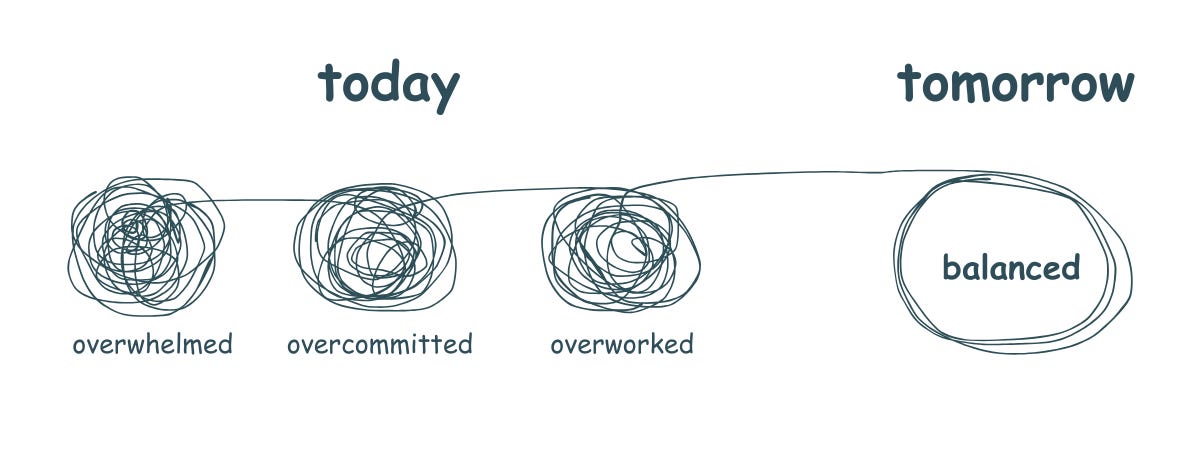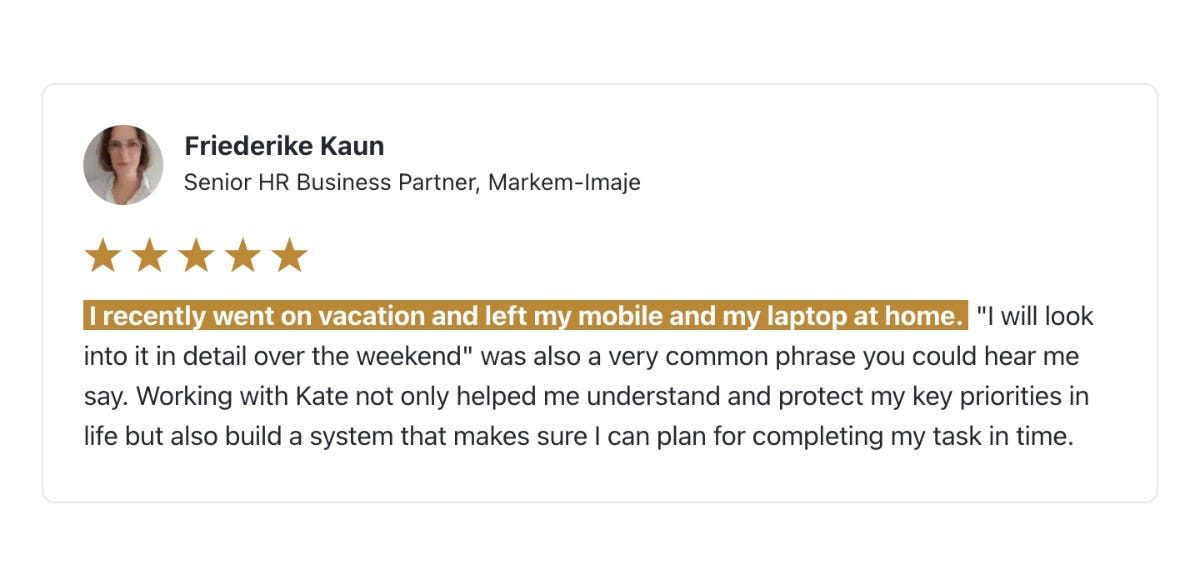Every email borrows time from who you love 💌
Mindset shift to guard that time
19,800+ reading on LinkedIn
Read time: 4min
"With money you can buy a clock, but not time." - Chinese proverb
Hi,
How was last week?
Since December, I've hosted 26 free workshops. Each time a leader signs up, I ask one simple question:
"What’s your biggest challenge to productivity and work-life balance?"
Here's what 351 leaders like you told me:
"I'm desperate to finish everything before calling it a day."
"I can't prioritize, so I end up doing reports on Saturday night."
"Firefighting all the time - my job doesn't fit a 40-hour week."
"Work keeps creeping into non-work time, I can't stop it."
"Balancing multiple competing priorities and urgent tasks."
"Prioritization is a struggle. I don't know where to start."
"Everyone thinks their request is the most urgent."
"Every day feels like a race."
Why share this?
Different people. Different countries. Different words.
Same story.
I call this the syndrome of too much of everything.
Too many tasks, too many emails, too many meetings, too many Team pings, too many "urgent" requests.
Urgencies are normal. But is it normal for every day to feel like a crisis?
We were educated to believe productivity means doing more and faster. And we still live in a culture that rewards more and faster.
So instead of eliminating, we add.
Instead of being intentional, we squeeze.
Instead of making better choices, we aim to finish it all.
I get it. I've been there. But one day I noticed something...
We're far more intentional with our money than with our time.
Understanding why helped me free up 30% of my schedule, stop squeezing, and let go of the impossible goal of finishing it all.
the why
Think about it.
Money can be earned back. Time can't.
And yet... we'll burn Saturday night on a report nobody reads, but think twice before booking a fourth dinner out this month.
Why?
Because money decisions are visible.
At the end of the month, your bank statement tells you exactly where it went. Your mobile app shows it to you in real time. Overspend, and you feel it right away.
So you adjust. "No more dinners out this week, we've got a health bill to cover."
But time? There's no "monthly statement." No app that pings you when you've overspent. So we take it for granted. "I'll find time tomorrow."
Except you won't.
Every "just one more email" is borrowed from someone or something you love. And your time bank doesn't have a credit line. But you're paying the interests.
the how
If you want balance, you need to manage time like money.
Not squeezing more into 24 hours but keeping work inside the time you want to allocate to it. This means adjusting, prioritizing, eliminating.
Ask time the same questions you ask money:
Meetings
Does this need to be weekly, or would bi-weekly work?
Could we get the same result (value) in 30 minutes instead of 60?
Do we need a status update meeting at all, or just a shared doc?
Reports
Who actually uses this? What's the value to dig that deep?
Does it need to be weekly, or would monthly do?
If it disappeared tomorrow, who would notice?
To-dos
Does this actually move me toward my goal?
If I didn't do it at all, what would really happen?
Is this a must-do (the goal is on the line), or just a nice-to-do ("I'd look hardworking and busy")?
These are the questions leaders learn to ask inside The Good Busy Reset.
These are not hacks. These are decisions. And when you start asking better questions, you make better choices - for yourself.
your play of the week
Treat your time like money 🏦
This week, before you accept another meeting with no agenda or jump on that monthly report nobody reads, ask yourself:
Is this value for my time (money)?
If yes, go for it.
If no, you know what to do.
And if you need help, that's the shift you make in The Good Busy Reset.
Save 20% this week with code RESET20.
Not sure? Experience my free 60-min workshop and ask me anything.
The alternative is to keep spinning in the OOO cycle straight through the rest of 2025.
Helping 50,000+ leaders on LinkedIn free up time from unnecessary work.
If you find The Good Busy Newsletter useful, let's grow our community on Substack: subscribe now, forward it to a friend or colleague.
I know productivity - not illustrations. Stickman figures by Zdenek Sasek.
Enjoy getting good busy!
See you next Monday,
Kate
PS: Do you also feel it's too much of everything? So did I. So did 9 leaders who joined The Good Busy Reset in May.
But here's what they said 5 weeks later:
• "I built a system that protects my life priorities."
• "Work no longer piles up the way it used to."
• "I'm confident what (and how) to say no to."
That's why they rated the program 9.6/10.
Save 20% this week with code RESET20.
Not sure? Experience my free 60-min workshop and ask me anything.
Friederike joined in May.






